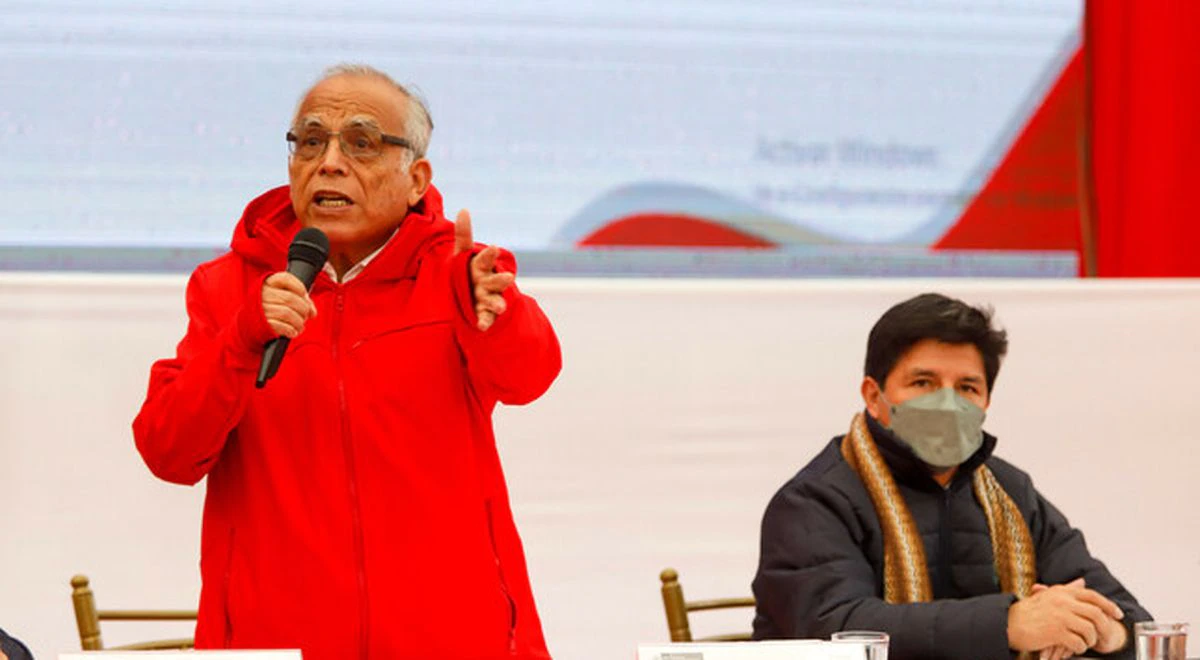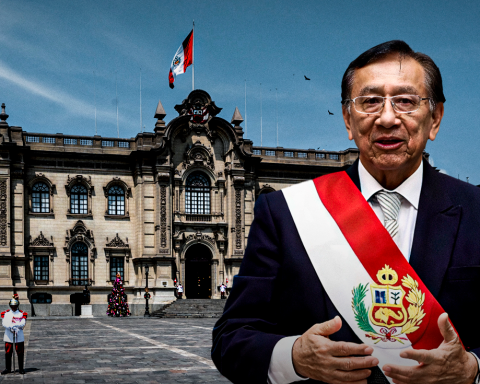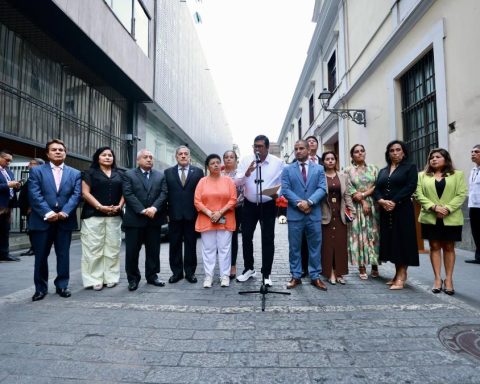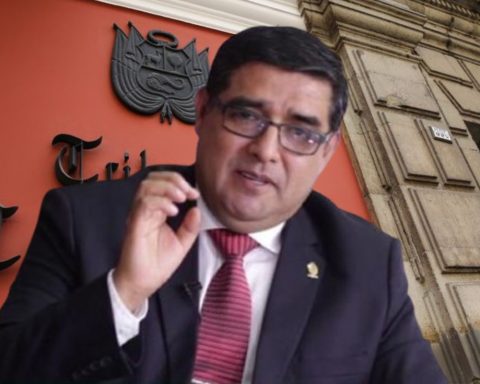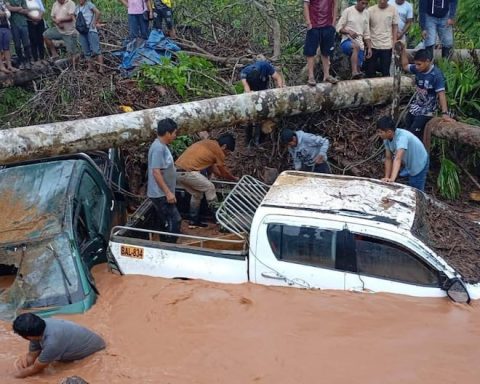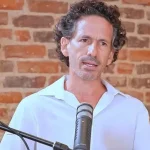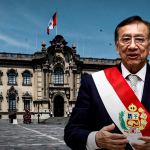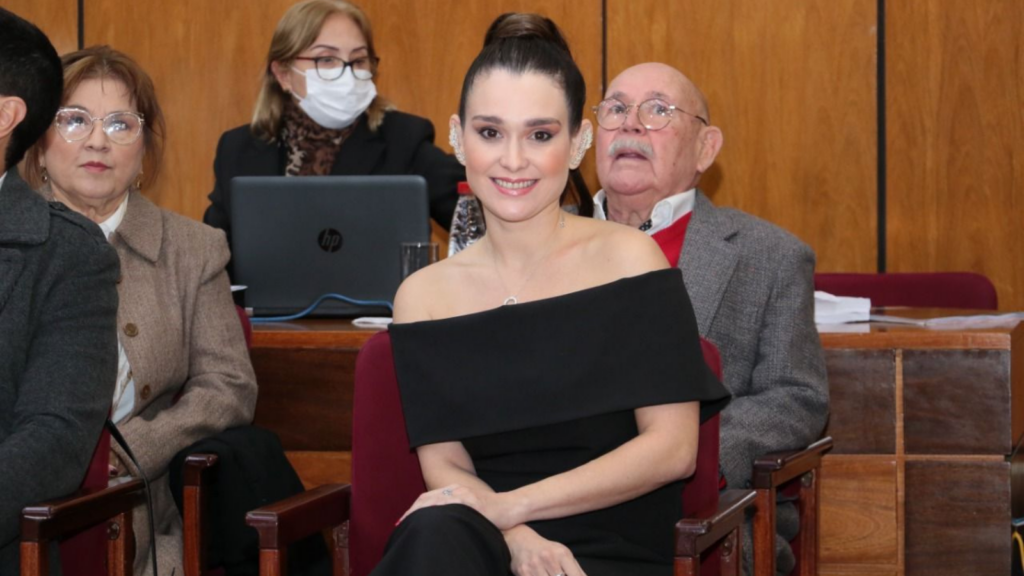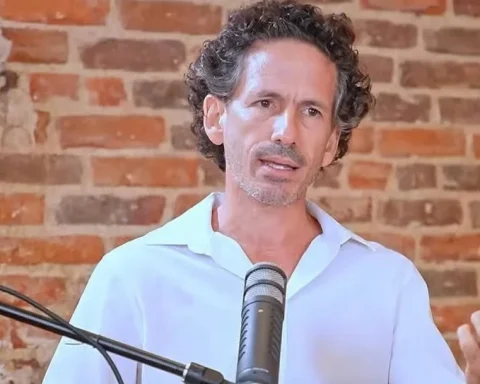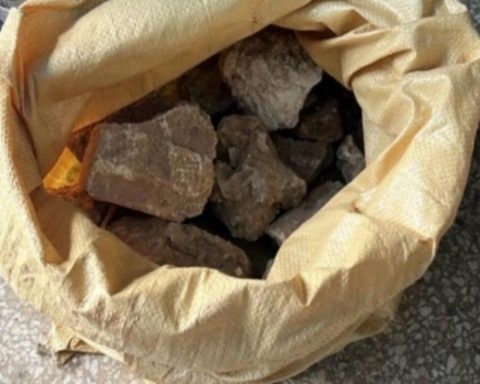In these more than 35 days in which the mining company MMG Las Bambas has suspended its activities in Apurímac, due to the blockades of the Challhuahuacho communities, the Executive, one of the institutions called to resolve this by mediating between the parties involved, boycotted the roads of dialogue due to the constant rocking of Prime Minister Aníbal Torres and the role of the Minister of Energy and Mines, Carlos Palacios.
The chronology of the events in Las Bambas in this last month is evidence of this.
On April 14, the Fuerabamba community members took control of the exterior of the MMG mining camp in Cotabambas, Apurímac. Two days later, Minister Palacios went to this place, but he was unable to calm the waters.
YOU CAN SEE: Las Bambas: due to the lack of dialogue, they demand a visit from Pedro Castillo
On April 18, MMG again suspended operations. It is the second time he has done so in the government of Pedro Castillo. When it paralyzed last year, Torres’ predecessor, Mirtha Vásquez, knew how to resolve the conflict without violence.
On April 23, Minister Palacios promised that on Monday the 25th and Tuesday the 26th he would meet with the leaders of the Chila and Choaquere communities. When he arrived on April 25, instead of going to Apurímac early, the head of Minem preferred to participate in the Council of Ministers, where the main item on the agenda was the presentation of the Constituent Assembly bill.
Only in the afternoon, Palacios arrived. The community members of Chila, at that time, no longer wanted to talk. The next day, April 26, while Palacios told them that the government was going to bet on dialogue, MMG and the Police planned an eviction operation against the outsiders in the Las Bambas camp.
YOU CAN SEE: Aníbal Torres: congressmen in favor of censoring the prime minister after failure in Las Bambas
No Exit. The measure of force in Challhuahuacho continues. Photo: diffusion
The Fuerabamba leaders planned for Minister Palacios to talk with them. But it was not like that. The day of eviction did not even approach them. The PCM, of Aníbal Torres, hours before the PNP operation, declared Apurímac in a state of emergency. The day was violent and repressive against the community members. There were 14 wounded and a journalist from La República detained by vigilante groups. PCM issued a statement washing its hands and acknowledging that it had known about the planning of the eviction since April 16. Despite this, they did nothing.
Only on April 29, the PCM summoned the community members and MMG to a dialogue table for May 7. Meanwhile, Torres prioritized his decentralized councils where he promoted his Constituent Assembly project. The May 7 meeting was postponed to May 10 in Cotabambas.
But Torres did not go. On May 12, when he was questioned in the plenary session of Congress, he excused himself alleging that his absence was due to the fact that he was afraid of being kidnapped by the community members. This was an offense to the citizens of Challhuahuacho.
YOU CAN SEE: Aníbal Torres: “The current government has not taken a penny from the right or the extreme right”
Another meeting was scheduled for May 18 in Challhuahuacho. And the prime minister kicked the board again. The meeting was scheduled for 11 in the morning, but the minister preferred to go to Cusco first to resolve a conflict there and arrived three hours late in Apurímac.
When he was in Challhuahuacho he did not propose any solution. He had a confrontational speech. He listened to the community members, he told them that the state of emergency would only be annulled if the blockade was lifted. He did not even apologize for his expressions on May 12 in Congress. The outsiders screwed it up and demanded the presence of President Pedro Castillo. The governor of Apurímac, Baltazar Lartarón, asked Torres to step aside.
While the Executive does not find a way out, mining activity will continue uphill in Cotabambas. The communities do not want to have another negotiating table with the premier.
YOU CAN SEE: Governor of Apurímac: “We do not see Aníbal Torres with the responsibility of being a broker”
The Las Bambas project contributes almost 1% of the national GDP and 72% of Apurímac. Its stoppage, until now, has caused daily losses of S/5.2 million, according to MMG sources, which represents S/182 million to date.
However, the Castillo government shows no signs of finding a way out. The president, since the blockade began in Challhuahuacho, has remained silent, as is his custom when there is political and social turbulence.
His Ministers of the Interior, Alfonso Chávarry, and of Defense, José Gavidia, have given the community members of Fuerabamba an ultimatum. If after this dialogue table the protests are not raised, they will use all the force that the Constitution empowers them. This would generate more violence.
Infographic – The Republic
